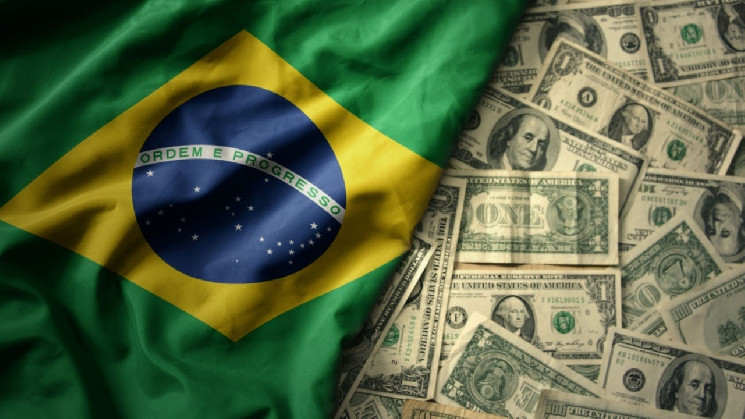[ad_1]
The new president of the Central Bank of Brazil has linked the rapid growth of stablecoins with tax evasion and money laundering. He remarked that individuals use these tools for cross-border payments to maintain an “opaque vision for taxation or money laundering.”
Central Bank of Brazil States Stablecoin Volumes Linked to Tax Evasion and Money Laundering
Gabriel Galipolo, the newly appointed President of the Central Bank of Brazil, disclosed the institution’s vision regarding the country’s huge growth in the use of crypto and stablecoins.
Galipolo stated that, according to scrutinized data, more than 90% of the cryptocurrency usage corresponded to stablecoins, tokens pegged to the value of the U.S. dollar. At first, the bank attributed this phenomenon to the ease of establishing a crypto wallet and holding dollars for the population. “We assumed that it was probably an easier way to have an account in dollars,” he stated.
However, this position mutated, as the organization discussed whether stablecoins were used as an investment tool or to settle cross-border payments. He explained that stablecoin volumes were being used for payments linked to illicit purposes:
Most of it is for buying things from abroad… usually things that people are buying, and that is the bad part, and they are using it because it maintains some kind of opaque vision for taxation or for money laundering.
Galipolo also criticized the search for privacy of some citizens, claiming it was usually linked to illicit activities. Valor Economico quoted Galipolo remarking that most citizens seeking privacy are doing it “probably because people are buying things and don’t want to declare what they are buying because they want to avoid some type of taxation.”
Galipolo’s vision offers insight into the future bank’s stance on stablecoin regulation. In December, the bank proposed rules correlating the treatment of stablecoins and foreign currency, potentially banning the private ownership of stablecoins in Brazil.
The rules, if finally passed, would also limit the activities of Brazilians in the decentralized finance (defi) sector, as many platforms require private management of these funds.
Read more: Brazil Groups Stablecoins With Foreign Currency in New Regulatory Draft
[ad_2]

